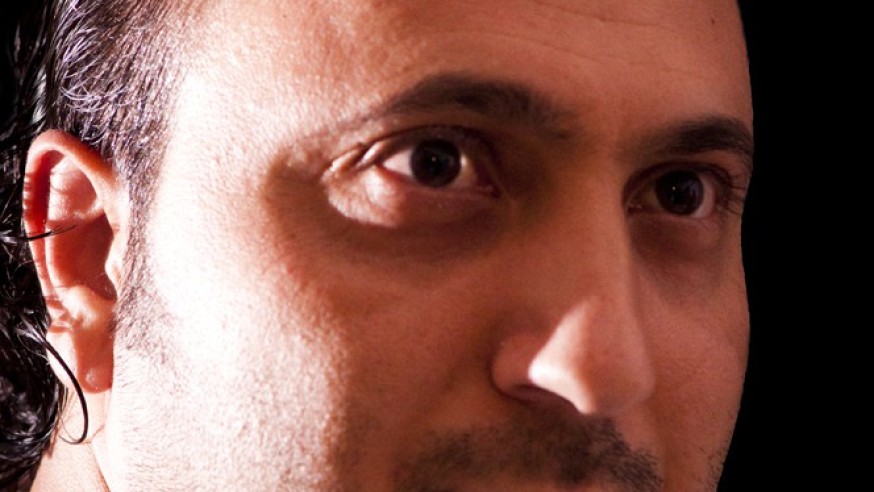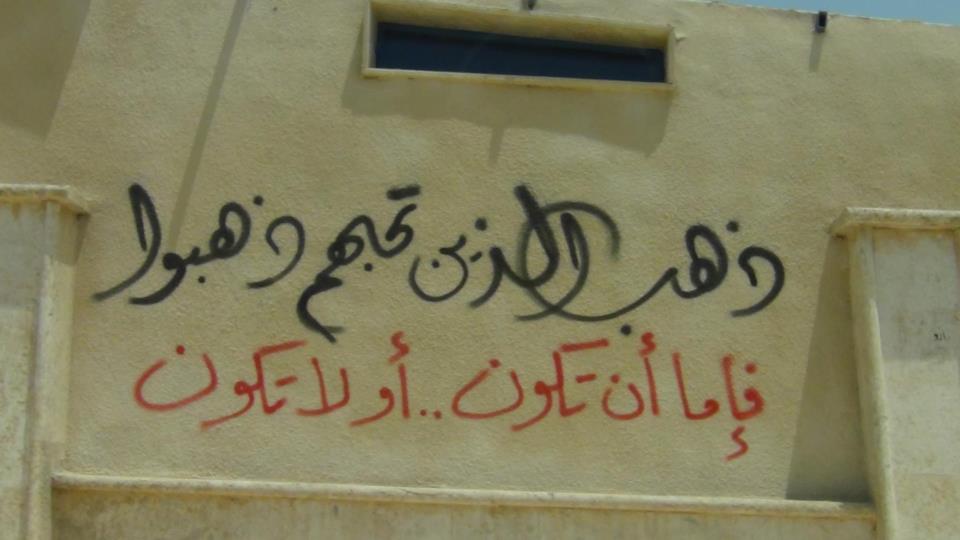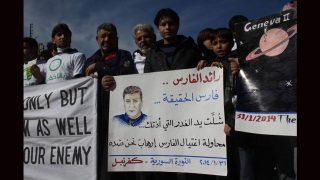If you want to know the difference between an authentic rebel and an insurgent, it is enough to contemplate the sad love intertwined with huge appreciation, which many Syrians and non-Syrians who knew or heard about the deceased Raed Fares and Hamoud Jneed expressed. An authentic rebel works laboriously, then vanishes into thin air, while an insurgent whom you see on every television, switches sides and is too busy fixing his image and monitoring his Likes on social media. For the insurgent, the revolution is just a profitable investment. But, for Raed and people like him, the revolution is home. It is a sense of belonging, a haven and a pathway to that moment of freedom.
The revolution continued in its own way for those who believe in it and seek it.
It is enough to hear the agonized cries that each Syrian opposing the dictatorship let out to be able to distinguish between the revolution and counter-revolution and the “counter-debauchery,” as Raed liked to call it.
It is enough to read through the pain that suddenly emerged on social media and in news bulletin —pain filled with despair and helplessness — to realize that the revolution continued in its own way for those who believe in it and seek it.
Raed and his friend Hamoud not only loved the revolution and believed in it, but they were also the revolution itself. Raed who was well-known was the face of this revolution, and he was backed by an army of people who worked behind the scenes. They shone through work and more of it. Their “pioneer” [Raed is an Arabic word that means pioneer] spoke on their behalf and in their name. They were men who created a revolution, even when they could not find one. Their words, banners, songs, legendary resilience and militancy never went off-track. They fought on the fronts of radicalism and oppression, and on the fronts of those claiming to fight oppression by allying with extremists or backing oppression to fight radicalism. All these actions show what kind of men we lost and who our broken and blood-soaked Syria is mourning.
By contemplating the life of Raed whose banners propagated around the world since the first months of the revolution, one realizes the difference between faith in the certainty of change through a long-term, peaceful, civil and democratic struggle and the fleeting aspect of quick change through foreign tanks, armies or “espousers” of radicalism. After a long battle with radicalism, Raed was killed by its own pawns. Long-term change always builds, while the quick change always destroys. The first gathers experience, work and militancy, while the second drains people, stone and energy. The first bears fruit, even after a long time. Nobody could ever uproot what Raed planted in the souls of Kafranbel people and the hearts of all Syrians. He will forever live on as an icon and through the experience he shared and left as legacy for all who lived or worked with him. However, the “achievements” of military action only speak from the depths of the abyss we have reached.
Did the death of Raed, who put his own life at stake since the outbreak of the revolution, shock us?
On the one hand, Raed’s death was not surprising because people like him are always targeted. Still, on the other hand, we were shocked because his death reminded us, who have been drowning in despair, disappointment and foreign propaganda or who consigned to domestic silence, that somebody was still fighting alone. It showed us that somebody still believed in his revolution and his ideas and was still working for them. Raed’s death was proof that someone still believed in the importance of banners, words, ideas and the media at a time of fatal militarization and direct military occupation. Above all, he was somebody who believed that whoever wants work can find it and create it. Nothing can impede him— no justifications, no despair and no moping. Perhaps the important lesson that Raed left us and wants us to learn from was the path that Ghayath Matar and Yahya al-Sharbaji took since the first minutes of the revolution. Many strayed from this path under the name of the revolution.
Raed’s killing highlighted the fight of the revolution against extremism and against those who defended and promoted it and wrote about it. Those people are inheriting Raed’s legacy without blinking. How could this happen? How is it possible that the “counter-debauchery” can still hide behind the real revolution?
How to walk in his footsteps
If we want to walk in Raed’s footsteps and continue what he started, we must first call a spade a spade. A revolution is a revolution, oppression is oppression, extremism is extremism and occupation is occupation. We must call each party by its name. We must open the door wide to criticism of each person who promoted extremism and is now mourning Raed, without any self-criticism or justification of why they shifted from theorizing the importance of allying with terrorism to fighting it. Those fair-weather people who change their minds according to the balance of power are the most dangerous for the revolution, even if they pretend to speak in its name and hide behind good intentions.
If we do not want Raed’s death to pass by without claiming its true meaning, we must transform this pain that we all felt from an emotional state into a state of awareness. We must use our minds to seek tangible ways to promote the militancy that Raed believed in and to continue this militancy on several fronts. We must fight oppression, extremism, occupation and negative awareness in society. We must also counter false cultural awareness, which justified terrorism, occupation and foreign intervention, regardless of its good intentions.






